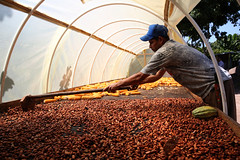World Employment and Social Outlook: Trends 2024
The report reveals a complex global employment scenario. It forecasts a slight increase in global unemployment in 2024, signalling emerging labour market challenges. The report highlights disparities between high and low-income countries, noting higher unemployment and poverty rates in lower-income nations. It also points out that a significant portion of the global workforce remains in informal employment.



